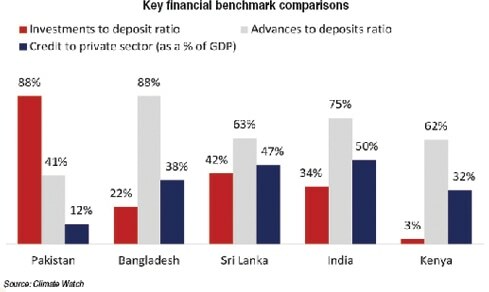 The maritime business the world over, which caters to 95 per cent of international trade, has started to slow down after a boom during 2000-2008.
The maritime business the world over, which caters to 95 per cent of international trade, has started to slow down after a boom during 2000-2008.
The freight rates for rice shipment from Karachi to West African Ports, which had surged to $120 per metric ton on free in and out (FIO) basis, have now plummeted to $60 per metric ton.
In 1980-90 it was hard to fix a ship on the same route beyond $26-$28 per ton on FIO basis. The ship-owners made windfall profits and some of them got their vessels free from bank liens within five years.
The Baltic Dry Index (BDI) has plunged to 900 from 11,000 in the face of ongoing financial meltdown, putting many ship-owners and operators in hot waters, and some big giants are struggling for survival amid reports of casualties.
Ukraine Industrial Carriers and Britannia Bulk are the first two to go down with many to follow. Nordic Bank of Denmark and Lloyds TSB have demanded $158 million from Britannia Bulk due to default on loan terms. South Korean dry bulk specialist, Pak Road Corp, is on the brink of bankruptcy and has terminated a number of existing contracts. Cosco of China has slashed spending by delaying the project investment.
The bankers, who have been willing lenders to the shipping companies in the recent past, are now reminding ship-owners not to expect leniency over meeting payments or breaching loan covenants.
The ship-owners were meted out similar attitude by the banks in Asian financial crises, but the impact of the current global financial meltdown on the shipping industry will be much more severe. Rina, the Italian Classification Society, agrees that the crisis will bite deeper, but expects significant opportunities for those having liquidity.
The terminal operators in Gulf countries have jacked up tariff by 20 per cent, and terminal charges are unaffordable in Pakistan, thus not only carriers are suffering from high handling charges, but rendering our export/import uncompetitive.
The Ministry of Ports and Shipping must enforce strong regulatory regime to bring uniformity in tariffs charged by terminal operators. The worst sufferer at their hands is the captive importer.
The ‘free market’ concept--- profit for private sector and losses for socialization—may be revisited. It is not justified that tax payers bear business losses.
In order to mitigate further losses, the ship owners have started laying up container and bulk carriers. Singapore has dozens of vessel laid up at the anchorage.
All major ship-owners are making strategic decisions to restructure their services to face the incoming ferocity of the financial storm.
It is feared that ship-owners will face foreclosures by bank or else be arrested at various ports for non-payment of dues. Morgan Stanley reports that share prices of Bulk Carriers and Containers do not reflect real asset value. The maximum greed has now turned into maximum fear. The forecast is gloomy as freight rates will continue to fall and charter rates in 2009 will decline by 60 per cent when benchmarked with 2008
The only state-run Pakistan National Shipping Corporation (PNSC) must undertake massive restructuring immediately by throwing extra fat and laying up 10 vessels of 28-year old with skeleton crew to avoid further losses.
Since Pakistan is facing serious problem in opening letters of credit for oil, the PNSC should place vessels on charters to reliable parties who do not default, as oil being energy will be needed world wide and tanker market has not suffered so badly as bulk and container market.
The cash-rich Gulf countries are out to benefit from the situation by purchasing vessels at half the cost and turning it into an opportunity. The PNSC may also consider this option, but trimming of establishment expenses is needed.
The conservative approach with a sound strategy, turning crisis into opportunity, be planned to keep the PNSC afloat. The ports have to enforce strict discipline, and tariff regime of all operators be seriously looked into and supervised by strong regulatory regime.
(The writer a former director-general, ports and shipping )











































Dear visitor, the comments section is undergoing an overhaul and will return soon.